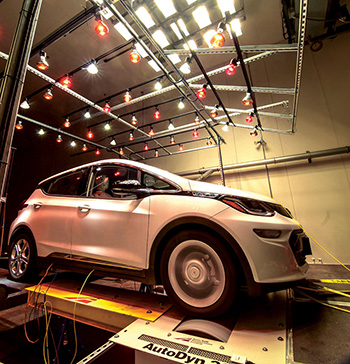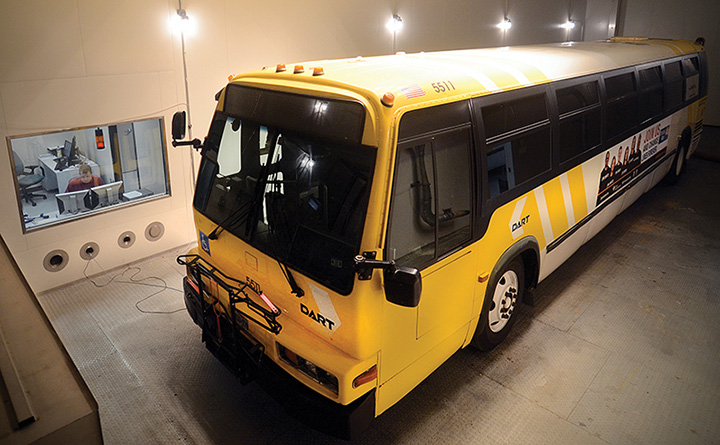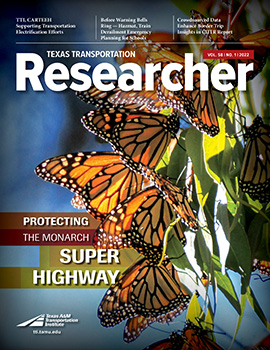The rapid appeal and growth of electric vehicles (EVs) over the last few decades are part of a fundamental shift in the constantly evolving transportation system. Stakeholders with interests in transportation, energy and emissions are finding they need to come together to plan for the future of the nation’s transportation system, including considering the idea of electricity one day powering the way most travelers, and thus consumers, move from point A to point B.

The Texas A&M Transportation Institute (TTI) and the Center for Advancing Research in Transportation Energy, Emissions, and Health (CARTEEH) are establishing the Clean Transportation Collaborative (CTC) to help facilitate and guide thought leadership in the transition to a low-emissions transportation system. To sufficiently plan for this renewed focus on clean transportation — including vehicle electrification — researchers have identified a need to work together to transition toward new interactions connecting transportation energy systems.
“What it means to create a low-emissions transportation system — especially in the sense of electrification — has drastically changed over the last decade,” says TTI Associate Research Scientist Alice Grossman. Grossman is one of the CARTEEH researchers leading CTC along with TTI Associate Research Engineer Tara Ramani and TTI Assistant Agency Director Joe Zietsman.
“Until recently, clean transportation primarily meant focusing on cleaning up existing internal combustion engines to reduce what they emit into the air,” Grossman adds. “Today, transportation electrification means that clean transportation is an interdisciplinary topic that has implications on the infrastructure, power grid and environment.”
Together, industry experts and public servants involved in CTC will work to reach the common goals of:
- stakeholder collaboration between the transportation and energy sectors;
- use of scientific and objective data to inform policy makers and other interested stakeholders of the emission impacts of existing and emerging vehicle technologies;
- education of policy makers on the singular and multiple emission reduction benefits of various vehicle technologies;
- maximization of emission reduction in the transportation sector in a cost-effective manner;
- national leadership in early completion of state-of-the-art emission, economic and technology assessments regarding each vehicle technology; and
- collaborative development of effective approaches to maximize emission reductions in the transportation sector and thereby advance equity and health outcomes.

Housed within CARTEEH, CTC supplements several ongoing and recently completed research projects in the area of transportation electrification, according to Tara Ramani.
“While CTC’s mission goes beyond electrification, it will bridge a number of EV-focused initiatives and projects that CARTEEH has sponsored,” notes Ramani. “CARTEEH has sponsored a project led by researchers in TTI’s Infrastructure Analysis Program to understand the economic impact of EVs. CARTEEH researchers worked with the Port of Houston and examined its fleet and cargo-handling equipment to study the feasibility of electrification opportunities. We also continue to support the Texas Department of Transportation on emerging electrification and air quality issues as part of our air quality work in the state.”

